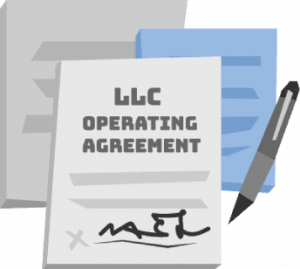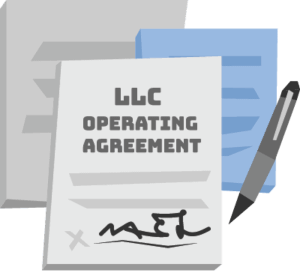How to Start an LLC in Tennessee
To start an LLC in Tennessee, you’ll need to complete three steps: name your business, designate a registered agent, and file formation paperwork plus a minimum filing fee of $300. But to keep your LLC in good standing and make sure you’re covered from a legal standpoint, you’ll need to go further.
Below, we guide you through what’s required to start your LLC in Tennessee and keep it in top shape afterwards.

1. Name Your LLC
First things first: Your LLC needs a name. The full rules for naming your business are detailed in TN Code § 48-249-106. But in general, your LLC name should:
- Have an accepted indicator such as “limited liability company,” “L.L.C.,” or “LLC.”
- NOT include words or abbreviations like “corp” or “incorporated” or “limited partnership.” In other words, leave out anything that could imply your LLC is a different type of entity.
- Not already be in use by another Tennessee business.
If you’ve already grown attached to a potential name, the Tennessee Secretary of State’s office can tell you if it’s available via a business name search. If you want to reserve a name before filing formation paperwork, you can submit an Application for Name Reservation. This form lets you pay a $20 fee to reserve a business name for up to 120 days.
It costs $20 to file an Application for Registration of an Assumed Limited Liability Company. An assumed business name is how Tennessee refers to DBAs, or Doing Business As. A DBA/assumed business name is any name you do business under other than the legal company name that appears on your formation paperwork.
Create a Tennessee LLC!


2. Register Your Domain Name
Next up, you’ll want to secure a domain name for your website. Why are these important? Just like you need a street address to help people find you on a map, you need a domain name to help people find you on the web.
For domain names, it’s better to register earlier rather than later. There are two basic reasons why:
- Credibility: When you bother to establish a professional domain name, you’re letting customers know you take your work seriously.
- Consistency: A domain name that connects to your brand name makes it simpler for customers to remember you, which makes them more likely to seek you out.
At Northwest, we offer domain names in-house. You’ll even get a free year of domain name registration when you hire us to form your business.

3. Designate a Registered Agent
All businesses in Tennessee are required by law to have a registered agent. That registered agent can be you, a friend, a stranger, or company like Northwest that you hire. But no matter who they are, they have to be willing to accept legal mail, notably service of lawsuits, on behalf of your business. Then they must forward that legal mail to you quickly. Other than that, your Tennessee registered agent must:
-
Have a physical address within Tennessee. This means no PO Boxes.
-
Be available during regular business hours to accept legal mail
Yes, but make sure you’re fine with having your name and address listed on the public record first. And you must also be available during regular business hours, so acting as your own registered agent isn’t the best idea if your business requires you to move around a lot during the day.

4. Submit LLC Articles of Organization
To officially create your Tennessee LLC, you must file Articles of Organization with the Tennessee Secretary of State’s Business Services Division and pay a minimum filing fee of $300 for LLCs with six members or fewer. If your LLC has more than six members, it will cost an additional $50 for each member, up to a maximum fee of $3,000.
Also note that everything you list on your Articles of Organization becomes part of the public record.
Below is the required information for your LLC’s Articles.
- Company name. Include an indicator such as “LLC.”
- Name consent (optional). If you want to use the same LLC name as an existing Tennessee business, check this box and get consent from the other company.
- Additional designation (optional). If your LLC isn’t a standard LLC (like a non-profit or professional LLC), you must indicate that here.
- Registered agent name and address. PO boxes aren’t allowed.
- Fiscal year close. List the month your fiscal year ends. For most businesses, this is December.
- Effective date (optional). You can delay the start of your LLC by as many as 90 days or skip this section.
- Management structure. Indicate whether your LLC will be member-managed or manager-managed. Tennessee also allows for “director-managed” LLCs, which are structured similarly to corporations.
- Number of members. Enter the number of members (owners) your LLC has when you file.
- Duration. If you want your LLC to close on a specific date, indicate that here or choose “perpetual” if your business will exist indefinitely.
- Principal address. This can be a located outside Tennessee, although it must be a physical street address.
- Mailing address. A PO Box is fine here.
- Non-profit LLC (optional).Check this box if your LLC will be a non-profit, or leave it blank.
- Professional LLC (optional). Check this box only if you’re forming a Professional LLC.
- Series LLC (optional). Check this box if you’re forming a Series LLC or leave it blank.
- Obligated member entity (optional). LLCs exist to limit liability by design, but if you there’s some reason you want to forgo your limited liability protection and be held responsible for the debts and obligations of the business, you can check this box.
- Prohibited businesses (optional). Check this box if your LLC is (for whatever reason) prohibited from conducting business in Tennessee, but most businesses can skip this.
- Additional provisions (optional). You can include additional provisions or skip.
- Organizer’s signature. Whoever files your Articles of Organization must sign the document. This person can be someone outside of your LLC.
Processing time is 1 to 10 days, depending on your filing method.
The minimum filing fee is $300, and the maximum is $3,000. The amount you pay depends on the number of members in your LLC. If you submit your paperwork online and pay using a credit or debit card, you must also pay a service fee of 2.29%. f you pay using an e-check, you must pay a service fee of 95 cents.
How do I file my Tennessee LLC Articles of Organization?
You can submit your articles online, by mail, or in person.
Mail and in person:
Secretary of State
6th Floor – Snodgrass Tower
Attn: Corporate Filing
312 Rosa L. Parks Ave.
Nashville, TN 37243
Any names, addresses, and phone numbers listed on your Articles of Organization will become part of the public record. That makes it easier for spammers to find you.
If you hire Northwest, we’ll list our business address whenever possible on the form to give you an extra layer of privacy.
Your Tennessee LLC Is Formed. What's Next?

Write an LLC Operating Agreement
An operating agreement details how your business will be run. This is an internal document, so you don’t have to file it with the state, but you still need to put some work into an operating agreement. The agreement should include information about how voting works, how membership gets transferred, and other important topics.
Contact a lawyer or use our free Tennessee LLC Operating Agreement Template.
Yes, although state law says it doesn’t have to be in writing unless specifically required by the Articles of Organization. But if you don’t put your operating agreement in writing, you’re taking a big risk. For one, no written agreement means that you could be subject to Tennessee’s default LLC laws, thereby giving you less control over your company.
You can customize the operating agreement to meet the specific needs of your business. That said, every operating agreement should cover basic topics like:
- initial investments
- profits, losses, and distributions
- voting rights, decision-making powers, and management
- transfer of membership interest
- dissolving the businesses

Get an EIN, Bank Account, & Funding
Every business needs money to operate, and your Tennessee LLC is no exception. Opening a business bank account helps you keep your limited liability, which is important in case your LLC ever ends up in court. Before you open a bank account, you need to get an EIN.
After your bank account is established, it’s time to fund the LLC. It’s simpler than it sounds: each member needs to make a financial contribution that matches their membership interest, aka the percentage of the LLC they own.
Yes, and it’s doubly important if you’ll be hiring employees. But even if you’re a one-person operation, an EIN is required to open a business bank account.
You can hire us to obtain your EIN when you buy our LLC formation package.

File Taxes & Reports
Tennessee LLCs must meet certain tax and reporting obligations. Here’s a breakdown:
- Taxes: A Tennessee LLC’s default tax status is pass-through entity, which means the profits “pass through” the LLC and get distributed to the members. Those members are then obligated to report the profits on their personal tax filings. At the federal level, Tennessee LLCs must pay a 15.3% self-employment tax rate.
- Annual Reports: Like most states, Tennessee requires you to file an annual report to keep the state updated on any changes with your company. For an LLC with six members or fewer, it costs $300 to file. For every additional member after six, it costs an extra $50, although $3,000 is the maximum amount any LLC has to pay. If you aren’t up to handling annual reports yourself, you can hire us to file them for you.
- BOI Report: New LLCs are asked to file a Beneficial Ownership Information (BOI) Report within 90 days of formation. BOI Reports are a new federal filing aimed at combating financial crimes like money laundering and other scams.
Due to an injunction, the Beneficial Ownership Information Report requirement is currently under review and voluntary to file. At this time, filing a BOI Report is optional, but if the requirement is reinstated, the original deadline (January 1, 2025 for most businesses) and penalties may still apply.
We’ll keep our site up to date as the court rulings proceed, and help you stay in the loop about this important business filing.
Yes. Annual reports are due on the first day of the fourth month following the end of your business’ fiscal year. So if your fiscal year ends with the calendar year on December 31, your annual report would be due April 1.
Tennessee LLCs are considered pass-through entities by default, but they can also file paperwork with the IRS to be taxed as an S-corp or C-corp.
You should file the report using online via the free BOI E-Filing System.
Yes, if any BOI Report information changes, you’ll need to file an updated report within 30 days of the change. You can update your BOI Report online at no cost.
Yes, there are 23 classes of exemption from the BOI Report. Among those exemptions are:
- Large operating companies
- Most financial companies, such as banks and credit unions
- Investment companies registered with the Securities and Exchange Commission (SEC)
- Insurance companies registered with a state or federal agency
- Public utilities companies registered with a state or federal agency
- Tax-exempt entities
*This is informational commentary, not advice. This information is intended strictly for informational purposes and does not constitute legal advice or a substitute for legal counsel. This information is not intended to create, nor does your receipt, viewing, or use of it constitute, an attorney-client relationship. More information is available in our Terms of Service.
Ready to Start an LLC in Tennessee?







